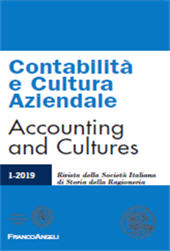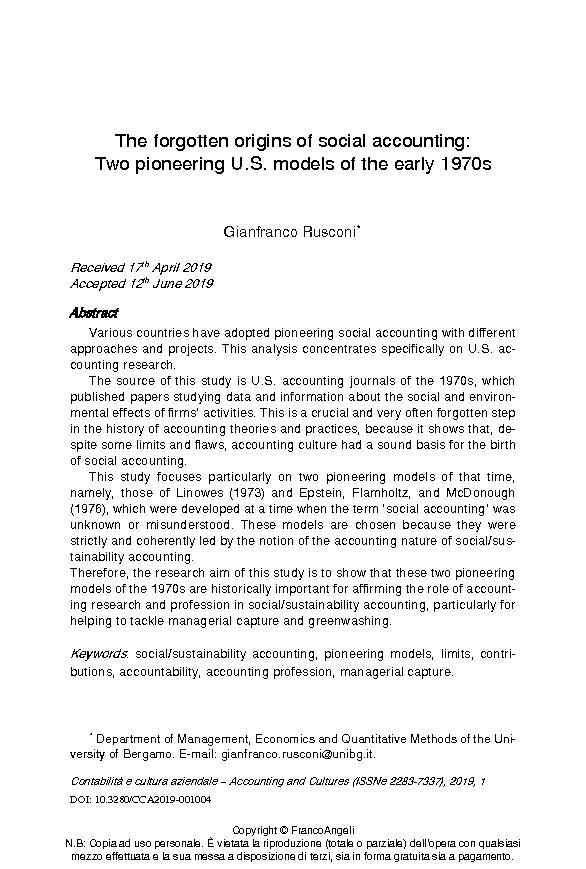The forgotten origins of social accounting : two pioneering U.S. models of the early 1970s
61-84 p.
Various countries have adopted pioneering social accounting with different approaches and projects. This analysis concentrates specifically on U.S. accounting research. The source of this study is U.S. accounting journals of the 1970s, which published papers studying data and information about the social and environmental effects of firms' activities. This is a crucial and very often forgotten step in the history of accounting theories and practices, because it shows that, despite some limits and flaws, accounting culture had a sound basis for the birth of social accounting. This study focuses particularly on two pioneering models of that time, namely, those of Linowes (1973) and Epstein, Flamholtz, and McDonough (1976), which were developed at a time when the term 'social accounting' was unknown or misunderstood. These models are chosen because they were strictly and coherently led by the notion of the accounting nature of social/sustainability accounting.
Therefore, the research aim of this study is to show that these two pioneering models of the 1970s are historically important for affirming the role of accounting research and profession in social/sustainability accounting, particularly for helping to tackle managerial capture and greenwashing. [Publisher's text]
Forma parte de
Contabilità e cultura aziendale : rivista della Società Italiana di Storia della Ragioneria : XIX, 1, 2019-
Artículos del mismo número (disponibles individualmente)
-
Información
Código DOI: 10.3280/CCA2019-001004
ISSN: 2283-7337
MATERIAS
KEYWORDS
- Social/sustainability accounting, pioneering models, limits, contribu-tions, accountability, accounting profession, managerial capture



